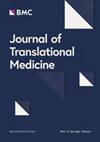MST1, a novel therapeutic target for Alzheimer's disease, regulates mitochondrial homeostasis by mediating mitochondrial DNA transcription and the PI3K-Akt-ROS pathway
Abstract
Background: Alzheimer's disease (AD) is a prevalent irreversible neurodegenerative condition marked by gradual cognitive deterioration and neuronal loss. The mammalian Ste20-like kinase (MST1)-Hippo pathway is pivotal in regulating cell apoptosis, immune response, mitochondrial function, and oxidative stress. However, the association between MST1 and mitochondrial function in AD remains unknown. Therefore, this study investigates the effect of MST1 on neuronal damage and cognitive impairment by regulating mitochondrial homeostasis in AD.
Methods: In this study, 4- and 7-month-old 5xFAD mice were selected to simulate the early and middle stages of AD, respectively; age-matched wild-type mice served as controls for comparative analysis. Adeno-associated virus (AAV) was injected into the hippocampus of mice. Four weeks post-injection, cognitive function, neuronal damage indicators, and mitochondrial morphology, dynamics, oxidative stress, ATP, and apoptosis-related indicators were evaluated. Additionally, RNA-sequencing was performed on the hippocampal tissue of 5xFAD mice and MST1-knockdown 5xFAD mice. Subsequently, Gene Ontology (GO) enrichment and Kyoto Encyclopedia of Genes and Genomes (KEGG) pathway analyses were performed on differentially expressed genes to elucidate the potential mechanism of MST1. In vitro studies were performed to investigate the effects of MST1 on SH-SY5Y model cell viability and mitochondrial function and validate the potential underlying molecular mechanisms.
Results: MST1 overexpression accelerated neuronal degeneration and cognitive deficits in vivo while promoting oxidative stress and mitochondrial damage. Similarly, in vitro, MST1 overexpression facilitated apoptosis and mitochondrial dysfunction. MST1 knockdown and chemical inactivation reduced cognitive decline, mitochondrial dysfunction, and neuronal degeneration. Mechanistically, MST1 regulated the transcription of mitochondrial genes, including MT-ND4L, MT-ATP6, and MT-CO2, by binding to PGC1α. Moreover, MST1 influenced cellular oxidative stress through the PI3K-Akt-ROS pathway, ultimately disrupting mitochondrial homeostasis and mediating cell damage.
Conclusions: Cumulatively, these results suggest that MST1 primarily regulates mitochondrial DNA transcription levels by interacting with PGC1α and modulates cellular oxidative stress through the PI3K-Akt-ROS pathway, disrupting mitochondrial homeostasis. This discovery can be exploited to potentially enhance mitochondrial energy metabolism pathways by targeting MST1, offering novel potential therapeutic targets for treating AD.





